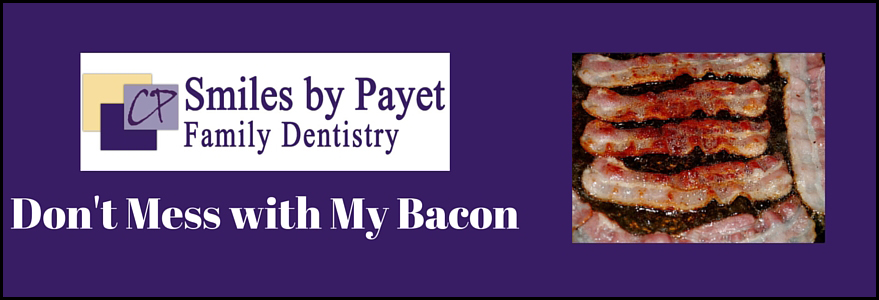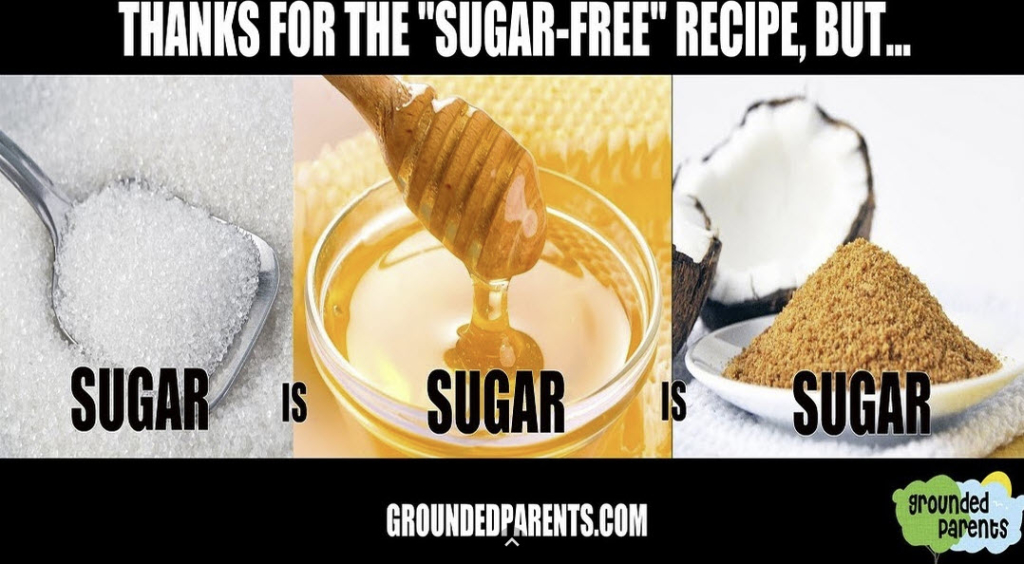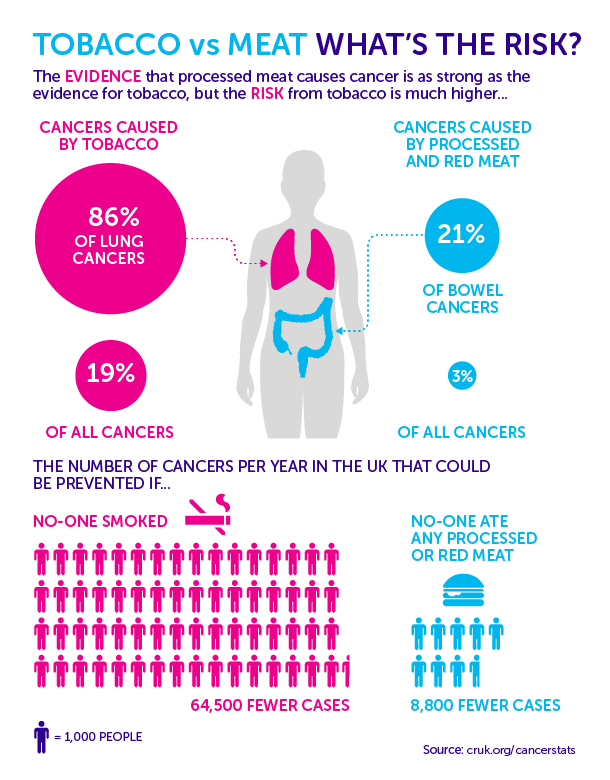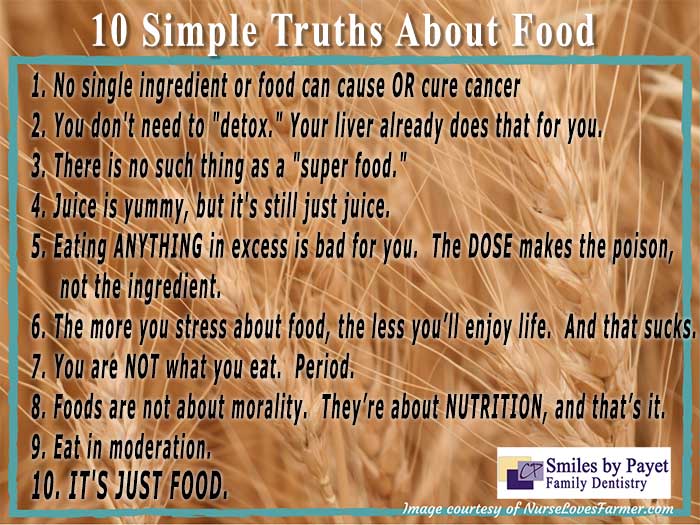
In the last month there have been articles running wild in the news and on social media on 2 subjects that are driving me nuts with how the journalism is misrepresenting or badly overblowing the results. And I just can’t let it go because – well, danggit, they’re going after 2 of my favorite things! And yes, we’re talking about sugar and bacon. Seriously, y’all…….do not mess with sugar and bacon unless you’ve got really AMAZING evidence. Which these studies don’t. So if you are like me and you enjoy sugar in your coffee or tea and you enjoy some bacon, deli meats, and steak, it’s ok – keep enjoying them! But if you’re having to argue with your husband or wife about why you still eat bacon and use sugar in your coffee, here’s the ammo you need. (Please thank me with market style bacon from Fresh Market, ok? 🙂
I’ve written about how bad science journalism can be in some previous articles that you can read here:
- 10 Simple Truths about Food
- Bad Reporting on Fluoride by Newsweek
- Fluoride does NOT increase ADHD
- Why I Don’t Buy Organic Food Anymore
Bad Science Reporting #1: Sugar, Kids, and Health Improvements
First of all, let me be clear that, as a dentist, I am firmly of the opinion that it’s a good idea to limit your sugar intake because excess sugar is bad for your teeth and your overall health. Glucose, fructose, sucrose, it doesn’t matter. Too much of it is bad for you. Even if it’s in “healthy juices!” I don’t think that any reasonable person would disagree with that. Where I DO have a problem, though, is when people exaggerate the effects of sugar, or when they try to demonize a particular kind of sugar, which is what happened here.
The first study out running rampant in the news was one by Dr. Robert Lustig, making a bold claim that a drastic cut in processed sugar intake has huge benefits in just 10 days. The basic gist of the study was that 43 Latino and African-American kids between the ages of 9-18 replaced a large portion of the calories in their diet from sugar with other starchy carbohydrates, and after 10 days, there were “huge” improvements in multiple measures of their health, including blood pressure, risk of diabetes, cholesterol, and more. And man oh man…..the media went CRAZY over this as more proof that “sugar is bad.” PUH-LEEEEZE. The lack of critical investigation into this study was mind-blowing. If you stop and think about it for a moment, doesn’t it seem odd that changing just ONE nutrient level would magically make that big a difference in just 10 days? If it doesn’t, you need to put on your critical thinking cap a little more snugly. So let’s look at some of the critical analysis and problems with this study, shall we?
In a detailed and thorough analysis titled Glaring Flaws in the Sugar Study on the website Sense about Statistics, the authors offered these criticisms:
- “Observational studies on sugar consumption are rife with confounding factors: kids who eat more sugar have so many other differences compared to kids who eat less sugar, making it impossible to know if sugar is the culprit.”
- “Results from food surveys are notoriously incorrect. And as we will see, this little feature of the study may have an enormous impact on the results.”
- “This is not a randomized experiment. The study included only kids given a special diet with no control group. “
- “The food choices used in the study were based on reports of what the kids normally eat—but we can’t know whether we have accurate data on what they normally eat. The kids spent 10 days thinking about what they eat (because they were provided with this special food) and weighing themselves daily. Maybe the mindfulness alone led to changes in eating habits, resulting in better biological metrics. Without knowing to what we are comparing the low-sugar diet, we cannot be confident that reduced sugar is the only difference from the original diet.”
- “The study grossly underestimated the number of calories required by the kids to maintain their weight—an error in calculation or through reliance on self-reported diets—but also one that reflects poor study design. The kids’ dietary needs should have been tested from the start.”
- ” …the collection of data may have been flawed by design. The kids may have been more primed to fast as they were supposed to for Day 10, after nine days of focus on eating and weighing themselves, than they were to fast properly for Day 0.”
- “Finally, the results of this study fail to account for multiple testing, and therefore may be overstating its results independent of the other issues mentioned.”
And in an article Health Threat of Sugar is Vastly Overblown in the Guardian, similar criticisms are made, along with this telling conclusion to the article (added emphasis is by me):
“Tom Sanders, professor emeritus of nutrition and dietetics at King’s College London, said the study needed to be viewed “with some skepticism” because it was uncontrolled. It did not compare the children with a similar group who continued to eat a high-sugar diet. The comparison instead was made with their weight and health before the study while on their usual diet. “But it is well known that obese children underestimate and under-report food intake, particularly of soft drinks and snack foods,” said Sanders.
“This is a fundamental flaw in the study. It is likely that the changes in metabolic outcomes observed can be explained by the experimental diet providing fewer calories than the children’s usual intake.”
Given that sugar and starch contain roughly the same amount of calories per gram, he said: “It is just inconceivable that isocaloric substitution of sugar from starch would have such a large effect on metabolism. In fact it denies the basic laws of thermodynamics.””
Put it all together, and what you have is a study that is a good starting point for additional research that addresses the flaws of the current study, and offers other researchers a model to try and replicate. Until the study can be replicated and verified, however, we need to remember that you can’t believe every study you read. This is a decent preliminary study, but it is not even close to “proof” of anything.
A Reminder: Sugar is Sugar is Sugar
As a slight tangent, I recently was reminded of a popular myth about different kinds of sugar; namely, the idea that brown sugar is somehow less processed than white sugar. I actually used to believe that myself, and I can’t remember who or where that bubble was burst, but it’s an important reminder that really – sugar is sugar. It really doesn’t matter if it’s honey, raw sugar, fruit, carbs, white sugar; by the time it’s all broken down in your digestive system, it basically all goes into your bloodstream as glucose or fructose since those are the only kinds that your cells can use. This info from one of my favorite science-based parenting websites Grounded Parents sums it up nicely.

Bad Science Reporting #2: Processed Meat and Cancer Risk
The second study that got a lot of press and overblown conclusions was from the IARC, Carcinogenicity of Red and Processed Meat, which resulted in the IARC classifying red meat and processed meat as Class 2a and 1 Carcinogens, respectively. Interestingly enough, that puts bacon in an even higher Class than the one into which the IARC put the herbicide Glyphosate earlier in 2015, which raises some interesting questions that I’ll address later in this article. However, besides the fact that the IARC doesn’t do a good job at explaining how their classifications work (see Ed Yong’s article in The Atlantic), there’s also a little problem with the whole “18% increase in risk of cancer” that’s being trumpeted everywhere. In fact, there are 2 problems, which Dr. Steven Novella points out succinctly in his response to the IARC on his Neurologica Blog:
For processed meat they concluded that eating 50 grams per day (a little less than two slices of bacon) increases risk of colorectal cancer by 18%. That is a relative risk increase, the absolute risk increases by 1% (from 6 to 7% lifetime risk). … The best advice remains – eat a varied diet, eat plenty of fruits and vegetables, and everything in moderation. Don’t eat red meat every day, limit processed meat to an occasional treat. And of course, exercise regularly, don’t smoke, limit alcohol, get plenty of sleep. These are the things everyone knows are important, and they have an easily measurable and profound effect on health.
Did you catch that bolded text there (emphasis mine BTW)? Sure, your lifetime risk increases by 18%, but since the starting risk is only about 6%, that means the total risk only goes up to a whopping 7%. An absolute increase of a measly 1%. See why it’s important to understand that statistic? Not only that, the risk only goes up by that much for people in the highest risk group. AND it’s only for colorectal cancers, not for any others. And that’s only a 1% increase in absolute risk over your entire life.
Once again, Sense about Statistics does a thorough analysis in Death by Bacon: Did the News get to the Meat of the Matter? Given how long this article is getting, however, I’ll let you read the linked resource articles that explain the IARC’s announcement means instead of listing all of key points. This well-done infographic from the Cancer Research UK site’s article Processed Meat and Cancer – What You Need to Know does a nice job comparing the risk to smoking, since tobacco is in the same risk group as processed meats, while Mashable did a nice write-up Stop Panicking about Cancer that included the special clarification issued by the WHO because of widespread misreporting. Lastly, there’s a well-written analysis on Examine.com Scientists Just Found that Red Meat Causes Cancer – or Did They?

Credit: Cancer Research UK

Am I going to stop eating bacon because of an absolute 7% risk of colorectal cancer over my entire life because of it? HECK NO!
Health Risks and the Hypocrisy of Chipotle’s Anti-GMO Stance
In a move that I can only describe as blatant fear-mongering and pandering to scientific illiteracy, early in 2015 the Chipotle Restaurant chain announced that they would no longer serve GM (genetically modified) foods. While the anti-GMO crowd was initially pleased, it quickly became apparent that Chipotle was disingenuous at best and outright dishonest at worst, as there were a lot of nuances and loopholes in the fine print. Not surprisingly IMO, a few months later Chipotle was sued for still serving some foods with GM ingredients. But that’s not even my point here.
The point is that Chipotle tried to justify their decision by saying that GM crops are often treated with glyphosate and the IARC had classified glyphosate as a Class 2a Carcinogen. But this most recent statement by the IARC says that, essentially, processed meat is more carcinogenic that glyphosate! Shouldn’t that mean that all the people who are opposed to glyphosate should now be screaming to ban all red meat and processed meat? It’s the only “logical” thing to do if that’s the basis for your decisions, right? If you use the IARC’s classification for one thing you don’t like, shouldn’t you use it for everything? If not, isn’t that the definition of hypocrisy?
- The IARC says glyphosate is carcinogenic.
- So people scream for glyphosate to be banned and GM foods, too.
- The IARC says red meat and processed meat are more carcinogenic than glyphosate.
- Why aren’t the same people screaming for all red and processed meat to be banned?
Kavin Senapathy, a writer and science educator, summed it up extremely well in her recent article for Forbes.com, Hundreds of People have a Beef with Chipotle: Ditch the Hypocrisy or Ditch the Red Meat:
When the IARC classified the consumption of red meat as probably carcinogenic to humans (Group 2A), and processed meat as carcinogenic to humans (Group 1) in late October, Stephan Neidenbach, founder of the newly-formed Super PAC Americans for Science, decided to ask Chipotle to put their money where their concerned-about-probable-carcinogens mouth is. “When I saw that red meat, which is actually consumed regularly, was given the same classification as glyphosate I saw a chance to call out some hypocrisy,” explained Neidenbach, a father of two. So the science activist took to Change.org to start a petition, requesting that Chipotle stop serving pork and beef, as they now rank as class 2A carcinogens.
Of course, the Change.org petition is thoroughly tongue-in-cheek, as no reasonable person is going to say that we should immediately ban all red and processed meats (excepting vegetarians and vegans, of course). It’s all about relative risk and the nuances, not bold generalizations. Also, I have to put a little plug in here for Kavin’s new book (she’s a FB friend of mine and I admire her work at communicating science to the public) The Fear Babe: Shattering Vani Hari’s Glass House.
Interestingly, Reuters today reported that the European Food Safety Administration (EFSA) has issued a report that glyphosate is NOT likely to be carcinogenic, based on a much bigger evaluation of evidence that the IARC did.
Remember the “10 Simple Truths about Food?”
As I wrote about in my book review of The Gluten Lie: and Other Myths about the Food You Eat, the most important advice on nutrition is the age-old advice of, “Moderation in all things.” Yes, it’s perfectly OK to have some real sugar and processed and red meats, as long as they’re in moderation and part of a balanced diet that includes all the macro- and micro-nutrients important to your biochemical functioning. It’s not sexy, it’s not fancy, and it’s impossible to sell whole books about it, but there’s not one really solid bit of scientific evidence out there that disproves it. Neither sugar nor bacon will kill you or guaranteed give you cancer, high blood pressure, diabetes, Alzheimers, or anything else.

So next time you see an article in the news or on social media proclaiming that some ingredient is the source of all human illness…..take it with a grain of salt. Because it’s also ok to eat salt. 🙂
Lastly – if you eat too much sugar, call your dentist to make sure all the sugar hasn’t given you cavities.






